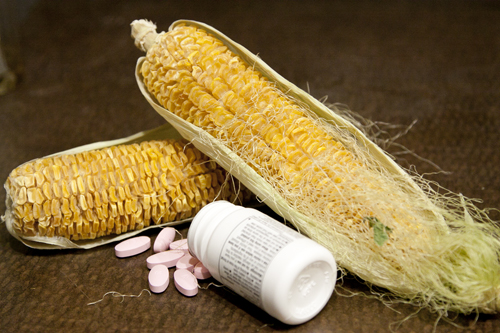If you were to ask someone on the street where their food comes from, their answer would likely be the name of a supermarket. But that’s not really the truth. Before our food makes its way to the grocery store, it is grown at a farm and then processed somewhere else entirely.
Food for thought

If you were to ask someone on the street where their food comes from, their answer would likely be the name of a supermarket. But that’s not really the truth. Before our food makes its way to the grocery store, it is grown at a farm and then processed somewhere else entirely.
Nowadays, it seems that people are becoming disconnected from the food that they eat. Without knowing or caring where our food comes from, we may not realize what kinds of chemicals and additives we are putting into our bodies, or how our food is being made.
Issues such as animal treatment, genetically modified organisms and pesticide use are being overlooked because people simply aren’t taking the time out of their day to figure out more information about their food.
It is this mindset of not worrying about the food that we are consuming that is leading to the record numbers of obesity and other diet-related illnesses in the world today. Food items that may have seemed relatively healthy, such as protein bars, juices and crackers with long shelf lives have hidden stores of calories and sugar that we are eating without a second (or even a first) glance at the ingredients list.
Not learning more about our food may seem like a stupid issue. I get it—our lives get busy, and we have plenty of other things to worry about. You go to the grocery store after a long of day of work or school and buy the same trusted brands that you have been buying for years. You don’t look at the ingredients list, because why would you need to? It’s just another thing to do on your already too long to-do list.
It may seem trivial, but in the overly convenient world that we live in—with premade lunches and dinners filled with preservatives and other questionable ingredients—making the time to ask where something is made or looking at the list of ingredients can make all the difference in our health and the way we live our lives.
Frankly, people do care about how they treat their bodies. No self-respecting person would fill themselves up with things that they knew were causing them harm just for the fun of it, and no one eats foods simply because they are unhealthy. When we do eat unhealthy foods it is because they taste good, or simply because they are convenient.
If you want to be healthy and treat your body well, it is going to take a little more work on your part than it might have 50 years ago. Research what certain terms like low-fat or gluten-free mean according to the Food and Drug Administration. They might not mean what you think they do, and buying foods without knowing what the terms mean tells food companies that they can keep up their same practices.
If you don’t know where your food comes from, look it up. If you don’t care, you should. We all want the newest and best technology, so why don’t we want the most responsibly grown and highest-quality foods?
Finding out this kind of information may seem pointless to some people, but it really isn’t. In a culture where food-related illnesses are killing people on a daily basis, where people no longer spend time cooking meals with their families and where food can contain a whole host of chemicals that we don’t want to be putting in our bodies, it is not pointless.
Knowing where your food comes from or how it is made doesn’t even require you to change your current eating habits. It’s not a campaign to get people eating healthier; it is just a campaign to promote knowledge.
You may find that, after doing some research, you don’t want to eat foods that contain certain preservatives, or you don’t want to buy eggs that aren’t free-range and grain-fed. That’s your choice. But realize what choices you are making, and how those choices will ultimately affect your life.
Now let me ask you: Do you know what you’re eating?






